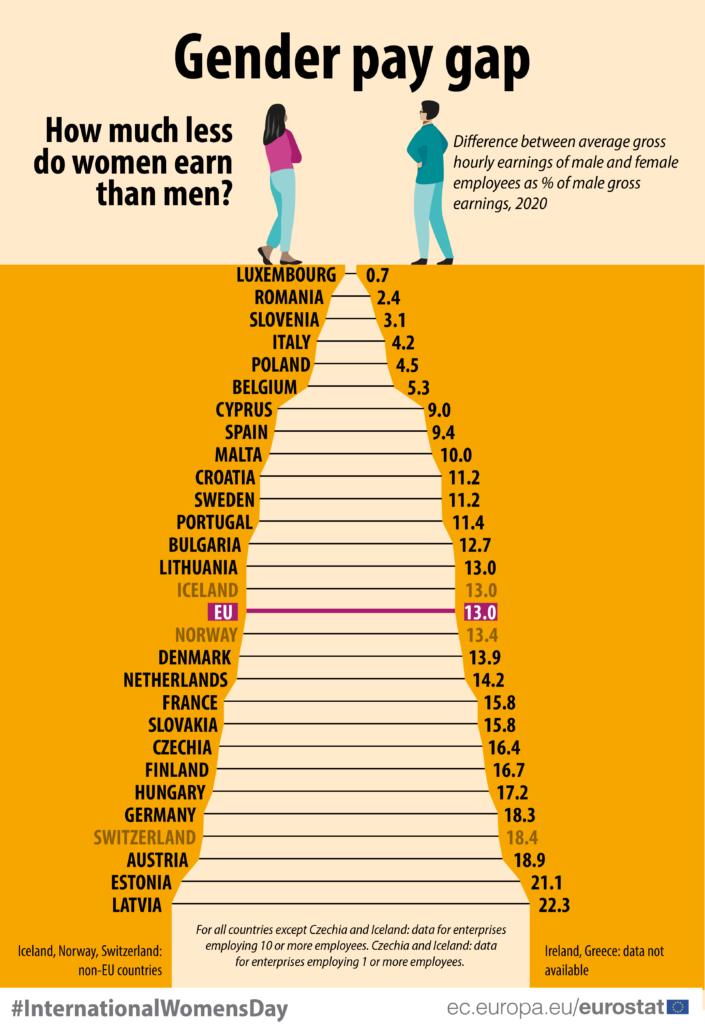Luxembourg has the lowest gender pay gap in the EU
16 June 2022

A new Eurostat report shows that the gender pay gap in Luxembourg between men and women is 0.7%, awarding the nation the top spot.
Inequality between women and men is present in many areas, and one of the fields where this is most debated is earnings. One way of measuring this imbalance is the gender pay gap, which shows the difference between the average gross hourly earnings of women and men (expressed as a percentage of the average gross hourly earnings of men). The Eurostat indicator is calculated for enterprises with 10 or more employees.
The 2021 edition Eurostat report shows that in 2020, women’s gross hourly earnings were on average 13% below those of men in the EU. The smallest pay gaps were measured in Luxembourg (0.7%), Romania (2.4%) and Slovenia (3.1%).
While Luxembourg is far ahead of the EU average, women still make less than men. Furthermore, women usually do more unpaid work than men such as caring for children and doing household chores.

Researching Gender Equality
Research Luxembourg’s Dr. Eva Sierminska from the Luxembourg Institute of Socio-Economic Research (LISER) represents Luxembourg at annual Equal Pay Conferences organised by the European Commission. As an expert, Eva helps disseminate good practices on gender equality in Europe and has exchanges with other researchers and country representatives. The end goal being to share knowledge and practices to overcome gender pay gaps and the discrimination in the work place.
“The gender wage gap in Luxembourg is one of the lowest in Europe. Nevertheless, numerous actions are needed to promote more equality for women and men in the labour market. Difficulties remain when it comes to promoting women to positions of responsibility and there exist many differences across sectors. Equal pay may take place if mandatory certification is introduced.”
Eva Sierminska
In 2021, Eva published a paper with funding by the prestigious Alfred Sloan Foundation. Entitled “Gender Differences in Economics PhD Field Specializations with Correlated Choices”, and co-authored with Ronald L. Oaxaca (University of Arizona), the authors find that if women and men had more similar characteristics they would be less likely to select fields of specialisation where they dominate (e.g. equal shares in top schools, more equal salaries). Among beginning economists, women and men tend to specialise in different subfields of economics with women tending to focus on health and labour market issues and men focusing on financial/monetary subjects.










